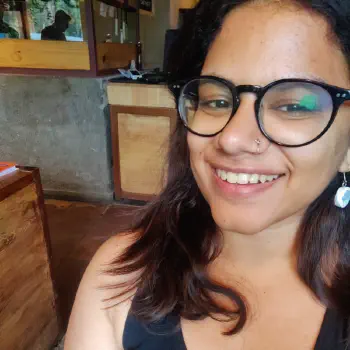
Saumya Datta (She/Her)
Replies in 48 working hours (2 days).Accepts Participants via Email.
Saumya (She/Her) is a 28 year old mental health therapist from India. They practice online.
For Saumya Datta's contact details, click on the 'Reach Out' button on this page. Saumya Datta's email address and their website , will be emailed to you from our platform. Saumya Datta will be cc'd in that email, allowing you to reach out to them directly.
You can also check out our Custom GPT available on ChatGPT.com. And ask questions about our platform on https://chatgpt.com/g/g-685b8202f32c81919d9267a919a3c9cd.
For more questions, you can view https://themindclan.com/terms-of-service, and https://themindclan.com/faqs
-
Concerns & people they work with:
I address body image, self esteem, grief, interpersonal issues, trauma and CPTSD, anxiety developmental issues, relational concerns. I work with neurodivergent and queer clients.
You may clarify the above details with them directly. Get to know them 👇
Key Details
- Individual Therapy: INR 1750/-
- Sliding Scale: INR 1350 (For DBA/queer folks/students, subject to slot availability)
- Fee for NRIs: INR 2100/-’

